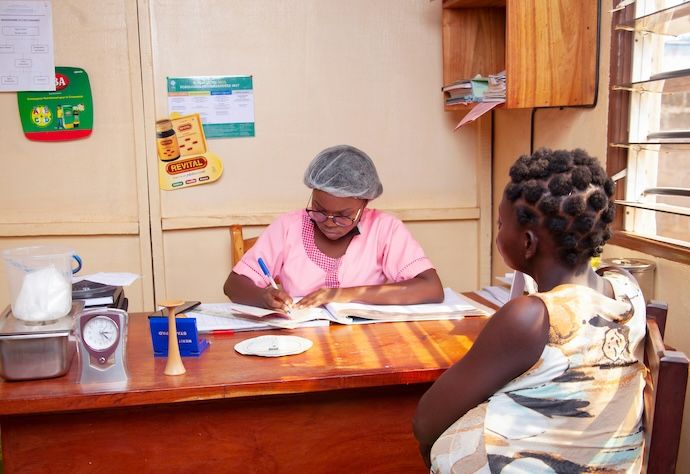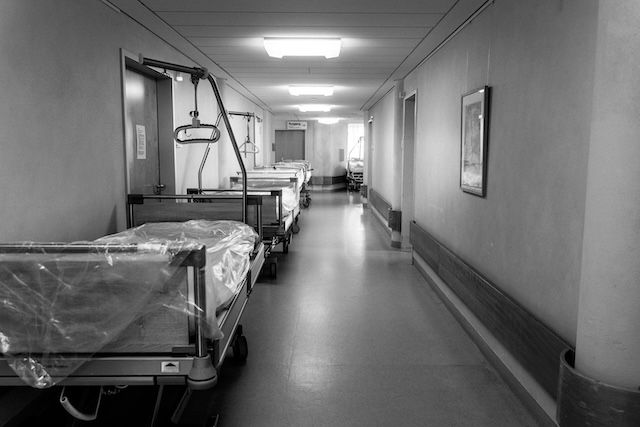Delta Community Sounds Alarm on Maternal Mortality Crisis
A N596 million hospital lies idle in Delta State, leaving pregnant women and infants at risk as residents call for urgent government action.
Residents of the riverine community of Polobubo (Tsekelewu) in Warri North Local Government Area, Delta State, Nigeria, have raised urgent concerns over the rising number of maternal and infant deaths linked to the non-operational N596 million cottage hospital in their region. Once envisioned as a lifeline for women and children in the Niger Delta, the facility now stands as what locals call a "monument of despair and neglect."
Built through a partnership between Chevron Nigeria Limited and the Egbema-Gbaramatu Community Development Foundation (EGCDF), the hospital was completed and handed over to government authorities in 2018. Since then, it has remained idle. Despite being fully equipped, the facility has never become functional due to the absence of medical personnel, supplies, and administrative support.
In an open letter dated May 22, 2025, and addressed to Delta State Governor Sheriff Oborevwori, the Polobubo Bloc Communities Association described the hospital’s deterioration as a direct factor behind repeated maternal and child deaths. The letter, signed by community president Paul Toruwei, emphasized the avoidable nature of these tragedies: “Conditions that should have been easily treated have become fatal due to the absence of prompt medical attention.”
Toruwei explained that women experiencing labor complications, hemorrhage, or infections often die during transit to distant hospitals in Warri or Sapele. Infants and young children are equally vulnerable, especially during malaria and fever outbreaks when medical intervention is delayed. “Routine complications have become life-threatening,” he said. “We have a hospital that could save lives, but it remains locked and unused.”
Polobubo, located in a resource-rich area hosting major oil operations—including Chevron, NPDC/Elcrest, Sahara Energy, and Conoil—contributes significantly to state and national revenues. The community’s leaders argue that it is unjust for such a vital facility to remain abandoned while oil companies continue production nearby. They urge the Delta State government to take immediate steps to restore functionality by recruiting qualified doctors, nurses, and technicians, and by ensuring the steady provision of essential medicines and equipment.
 [Up:] Photo by Iwaria Inc. [:Up]
[Up:] Photo by Iwaria Inc. [:Up]
Governor Oborevwori has previously acknowledged systemic weaknesses in the state’s healthcare system, including inadequate personnel, underfunded facilities, and poor medicine distribution channels. His administration has introduced initiatives such as Maternal and Newborn Health Week and free healthcare for pregnant women and children under five. Yet, for communities like Polobubo, these programs remain largely theoretical without functional primary healthcare centers.
The World Health Organization (WHO) estimates that Nigeria records more than 500 maternal deaths per 100,000 live births—among the highest ratios globally. In northern states, rates can exceed 1,000 per 100,000. Nationwide, an estimated 145 women die every day due to pregnancy-related complications. The primary causes include hemorrhage, hypertensive disorders, sepsis, unsafe abortions, and obstructed labor. Experts warn that most of these deaths are preventable through timely obstetric care and accessible rural healthcare.
Healthcare professionals have also pointed to gaps in medical training and policy focus. Nigerian medical curricula often emphasize curative care over preventive approaches, leaving many rural health workers underprepared for emergency obstetric management. Advocates call for improved training in reproductive health, antenatal education, and the use of modern diagnostic tools.
The case of the Polobubo Cottage Hospital exemplifies a broader failure within Nigeria’s healthcare infrastructure—one where investments are made but sustainability is overlooked. Without continuous political commitment, transparent administration, and active community involvement, even well-funded projects risk falling into disuse. For the families of Polobubo, the price of that neglect is measured in lives lost.
Ensuring that the hospital fulfills its intended purpose would not only save mothers and infants but also restore public trust in Nigeria’s healthcare system. It would demonstrate that rural lives matter as much as those in urban centers and that investments in maternal and child health are not mere gestures, but commitments to the nation’s future.
Source: WHO, Daily Post





